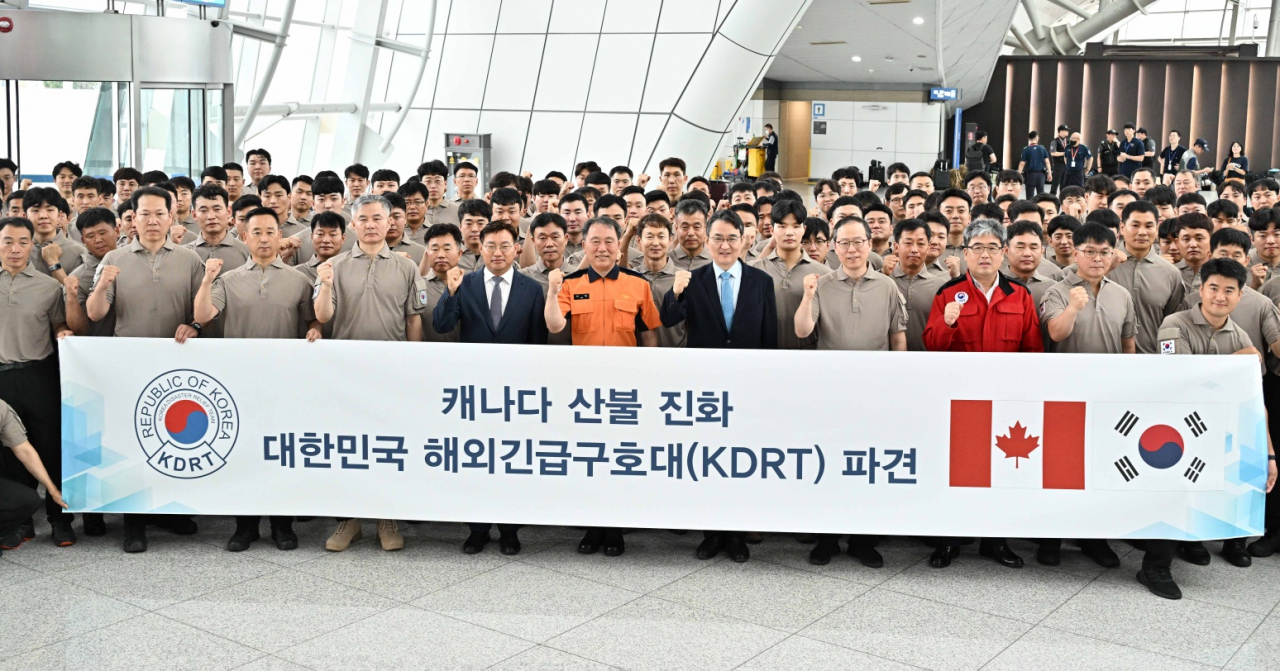 |
A 151-member South Korean disaster relief team leaves for Canada to help contain raging wildfires at Incheon International Airport on Sunday. (Ministry of Foreign Affairs) |
A 151-member South Korean disaster relief team has embarked on a 30-day mission Sunday to assist Canada in combating devastating wildfires that have ravaged the country.
The team, which includes firefighters, first responders and personnel experienced in disaster response, will land in the province of Quebec to contain the country’s worst wildfire season since 1989. As of Sunday, wildfires had affected at least 8.8 million hectares of land.
This marks the second time this year Korea has dispatched a disaster relief team overseas, following a previous mission to Turkey in February when it was hit by a series of major earthquakes. So far by country, the US has sent the biggest rescue team to Canada, which includes at least 1,200 personnel, followed by Australia and New Zealand, with a combined team of at least 400 rescuers.
“South Korea will continue to make efforts so that it becomes a global pivotal state that contributes to advancing freedom, peace and prosperity,” the Foreign Ministry in Seoul said, referring to its latest initiative, the Indo-Pacific strategy, which is aimed at raising Korea’s global profile.
The Yoon administration, which unveiled the plan in December last year saying it will leave a mark on Yoon’s presidency, has repeatedly spoken of a bigger global presence because Seoul is just as much invested in taking on bigger global roles as it is in advancing its economic and political interests.
At an interagency meeting on the rescue team Thursday, Foreign Minister Park Jin highlighted taking Korea-Canada ties to the “next level beyond jointly working on the wildfires,” suggesting that Seoul and Ottawa should build on their bilateral relations -- a longstanding partnership that began 60 years ago.
In late May, a summit between President Yoon Suk Yeol and Canadian Prime Minster Justin Trudeau openly solidified their shared commitment to promoting common economic and security priorities set out in their respective Indo-Pacific strategies.
The meeting, held to mark 60 years of ties, came at a time when South Korea was seeking economic partners while attracting support for an international coalition to pressure North Korea into dismantling its nuclear and missile programs.







![[Today’s K-pop] Blackpink’s Jennie, Lisa invited to Coachella as solo acts](http://res.heraldm.com/phpwas/restmb_idxmake.php?idx=644&simg=/content/image/2024/11/21/20241121050099_0.jpg)